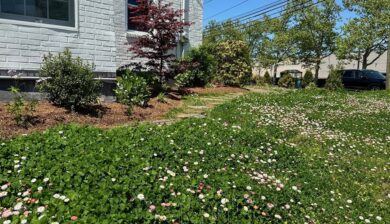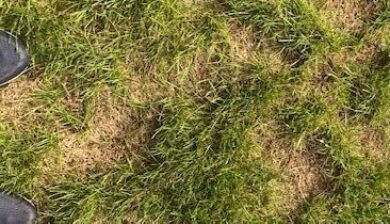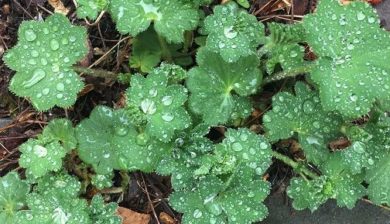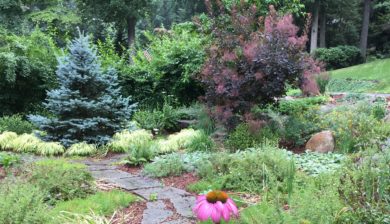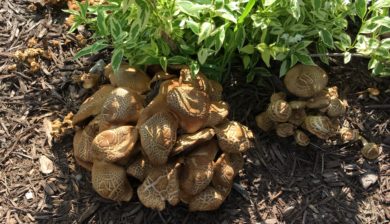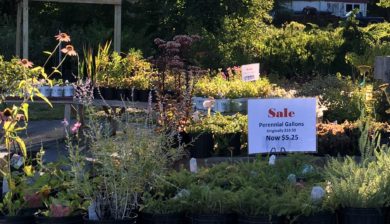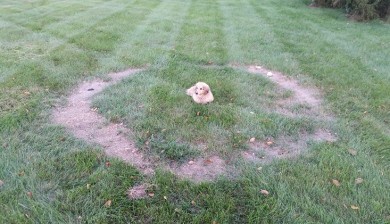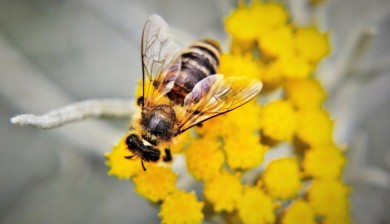Delightful No-Mow Clover Lawns
Hello, fellow lovers of all things green. Recently, I designed a low-maintenance garden filled with perennials, shrubs, and trees for year-round interest in Bergen County, NJ, not far from New York City. Around it, we planted a pollinator-friendly lawn alternative: a combination of No
Read MoreNo-Mow May helps Pollinators
Hello fellow readers, Have you ever heard of No-Mow May? It’s kind of like Dry January when folks forgo alcoholic drinks after a holiday of overindulgence. Well, maybe the only likeness is it lasts a month—the benefits of not mowing your grass in May last far longer. And it is e
Read MoreBrown Patchy Lawn Dilemma
Hello fellow readers, After our volunteer sing at the Karen Ann Quinlan Home for Hospice last Friday, my singing buddy, Ken of Branchville NJ, asked about grub remedies for his lawn riddled with brown patches. He tried a product from a home store, but it didn’t help. It may not be a g
Read MoreDollar Spot & Lotus Effect
Hello fellow readers, Have you noticed on a humid summer morning, sometimes there are shiny clusters of droplets on what looks like cobwebs in the lawn? The webs could be the branching nature of dollar spot fungus. Or, they may be the webs of grass spiders. Then there are the adorable
Read MoreLawn Alternatives Part 2
Hello Fellow Readers, Last week’s chat about Dutch clover (Trifolium repens) as a lawn alternative created quite a buzz. Beyond the buzz of our happy pollinators scurrying from bloom to bloom. It seems the algae bloom on New Jersey’s Lake Hopatcong has brought the devastating di
Read MoreGetting Gardens Vacation-ready
Hello fellow readers, The week of July 4th ignites the summer vacation season. With the plentiful rains so far this summer, plants will likely be more vulnerable to heat stress once the heat and dryness kick in. So, before you head off to de-stress, here are a few tips to help your p
Read MoreJuly 08, 2018
Plethora of Fungi in Mulch
Hello, Fellow Readers. Jeanne of Blairstown shared a fungi dilemma: an alien-looking plethora of mushrooms amongst her garden mulch. Mushrooms are the fruit of valuable spores that decay organic material and recycle nutrients back into the soil, which is good for plants. However, in v
Read MoreFall is for Planting
Hello fellow readers, We’ve had a brief hiatus from the heat and humidity, but its quick return has me weary. It occurs to me one of the biggest challenges in the garden of life is limited time. It’s true finding time in the garden is harder and harder as the summer unfolds. I b
Read MoreFairy Rings
Hello fellow readers, Have you ever heard of fairy rings? Neither have I until now. I always enjoy questions from Craig of Frelinghuysen, New Jersey. Without exception, his garden dilemmas always bring a chuckle. Remember his willows gone wild with the icky sticky slime? This time, he
Read MoreProtecting Pollinators – How can it Bee?
Hello fellow readers, They say one out of every three bites of food depends on a pollinator. According to the Pollinator Partnership, the largest non-profit organization in the world dedicated to the protection of pollinators, the U.S. has lost over 50 percent of its managed honeybee
Read More12
Copyright 2014, Garden Dilemmas? Ask Mary

